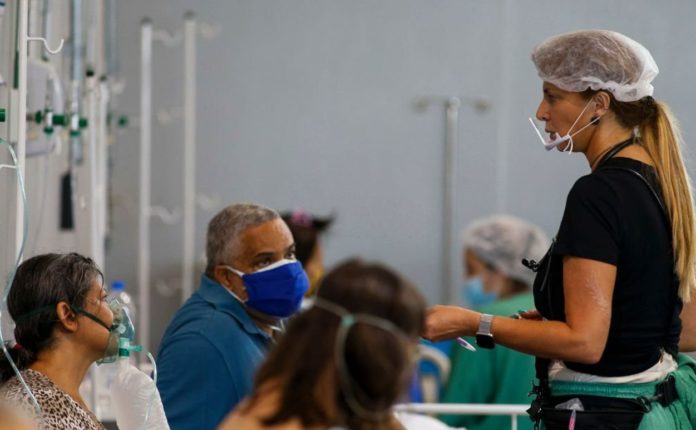Researchers in Canada have discovered a highly mutant strain of the virus in white-tailed deer and linked it to a human COVID-19 case in the area, though they stress that the risk of transmission to humans is low.
According to new preprint research that hasn’t been peer-reviewed, a group of Canadian scientists may have identified the first incidence of deer spreading the COVID to people and considered that it could have been evolving in animals since the end of 2020.
Humans typically carry the virus to deer, who subsequently spread it to other deer. New data reveals, however, that the virus may spread from deer to humans. A COVID-19 case was discovered in an Ontario resident who had just come into contact with deer.
“This particular case, while raising a red flag, doesn’t seem to be hugely alarming,” said Finlay Maguire, PhD, an epidemiologist at Dalhousie University and one of the study’s authors.
“While we haven’t seen [transmission from deer to humans] happen directly, we sampled from the human case around the same time we sampled from the deer, and we sampled from around the same location,” he added. “There is also a plausible link by which it could have happened, in that the individual involved is known to have had considerable contact with deer.”
Maguire and others have been tracking the coronavirus’s spread among animals. They evaluated nasal swabs and lymph node samples from hundreds of deer killed by hunters in southern and eastern Ontario in the fall of 2021. 17 of the 298 deer samples tested positive – all from southwestern Ontario.
They discovered a “highly divergent” coronavirus lineage during the research, which signifies a cluster of samples with several mutations. They discovered a genetically comparable form in a person from the same place around the same period.
According to Maguire, the study highlights the need for greater coronavirus surveillance in humans, animals, plants, and the larger environment. Deer may catch the virus from humans through contaminated water, direct contact, food, farming, or other animals such as mink, according to researchers.
The coronavirus lineage discovered in the study is not connected to the Delta or Omicron variants and is not currently circulating in people. The closest genetic relatives came from human and mink samples collected in Michigan in 2020, indicating that the diverse lineage altered and developed over time.
“It’s reassuring that we found no evidence of further transmission, during a time when we were doing a lot of sampling and a lot of sequencing,” said Samira Mubareka, one of the study authors and a virologist at Sunnybrook Health Sciences Centre.
“If we continue to do this surveillance, we’ll get a much better sense of what the actual risk is,” she added.
So far, the coronavirus has been discovered in wild white-tailed deer in the northeastern United States and central Canadian provinces.
Other known incidences of animal-to-human transmission have been found in farmed mink and maybe hamsters, according to the news outlet. Humans, on the other hand, are the ones who most commonly transfer the virus to animals and are the ones who are most likely to contract it from other people.
At the same time, the Canadian Public Health Agency has released recommendations for hunters, trappers, and people who work with wild deer. When exposed to respiratory tissues and fluids, people should use gloves, goggles, and a mask, especially indoors.
Normal cooking temperatures kill coronaviruses, according to the agency, and there is no evidence that cooked venison can spread the virus.
Source: 10.1101/2022.02.22.481551
Image Credit: Getty
You were reading: Scientists find a “highly divergent” coronavirus lineage that could affect humans
